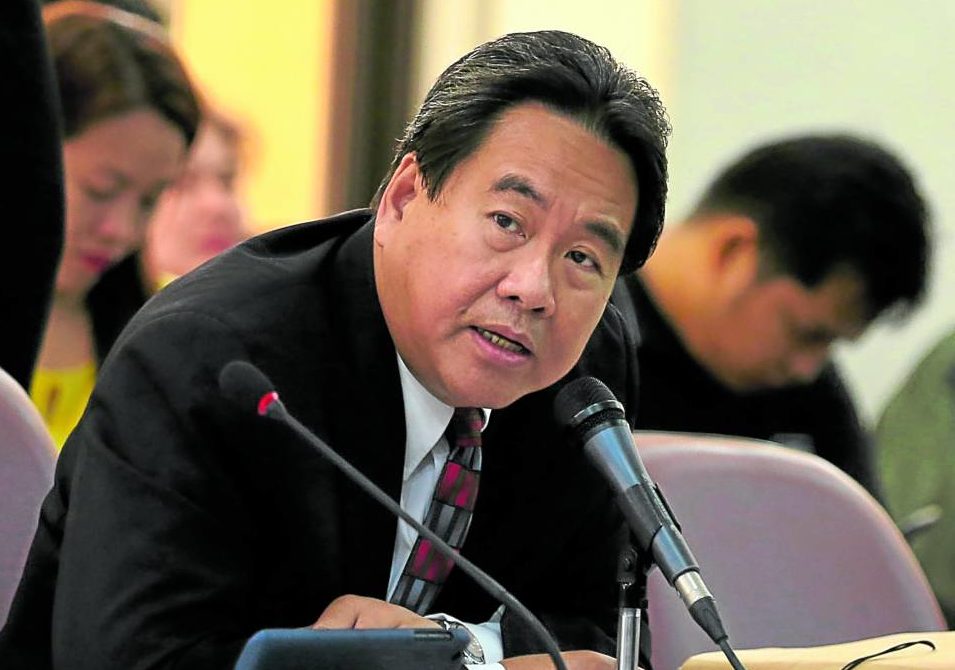
Rep. Rufus Rodriguez —INQUIRER FILE PHOTO
The main proponent of Charter change (Cha-cha) at the House of Representatives conceded that there was no guarantee that a constitutional convention (Con-con), once formed, would stick to only tweaking economic provisions of the 1987 Constitution.
House committee on constitutional amendments chair and Cagayan de Oro Rep. Rufus Rodriguez on Wednesday acknowledged that there was a “big possibility” that political provisions, including those pertaining to term limits of elected officials, as cited during his panel hearing, could be discussed by the proposed “hybrid Con-con.”
He also said that only P8.5 billion would be spent for the election of Con-con delegates, financing their work and the subsequent plebiscite.
Discussions on Resolution of Both Houses 6 (RBH 6) calling for a “hybrid Con-con” that would amend or revise the 1987 Constitution, was opened during late Wednesday afternoon’s plenary session of the House.
The “hybrid” body could include elected and appointed delegates.
According to Rodriguez, per initial discussions among members of his committee, one Con-con delegate each from the 253 congressional districts nationwide would be elected. There was also a proposal that the Speaker and the Senate president would recommend appointees based on the choices made by various social sectors and President Marcos would make the final appointments.
‘Restrictive’
In his speech sponsoring RBH 6, Rodriguez said that Cha-cha was propelled by the “compelling” reason that the House “cannot turn its back from the truth that the 1987 Constitution needs to be reviewed for it is the third most restrictive in the world and the most restrictive in the Asean (Association of Southeast Asian Nations).”
“Its inflexibility and restrictiveness hampers foreign direct investments to come in as much as they do in other countries,” he said, referring to the Charter’s provision which limits foreign ownership in some industries.
Rodriguez pointed out that while Congress had not been remiss in crafting laws to make structural reforms and to liberalize the Philippine economy, “the constitutional limitations (contravene) the objectives of these laws.”
“Unless and until the constitutional restrictions are removed, the apprehensions and hesitancy on the part of the investors will consequently remain,” he said. “It is high time to liberalize such restrictions in order to encourage the free flow of capital in the country and pave the way for global competitiveness.”
Rodriguez recalled that Congress passed a resolution in 1967 paving the way for the formation of the 1971 Con-con which framed the 1973 Constitution and shifted the system of government from presidential to parliamentary under the late ousted dictator Ferdinand Marcos, the President’s father.
According to Rodriguez, calling for a new convention would be “more transparent, more democratic and less divisive.”
‘Less responsive’
The passage of time and the social and economic changes that have occurred since it was adopted 36 years ago have made certain provisions of the 1987 Constitution “less responsive to our people’s needs,” he said.
Lifting the Charter’s restrictive economic provisions would generate jobs in foreign-owned companies and eventually increase the purchasing power of Filipinos, he said.
When asked by Assistant Minority Leader and Gabriela women’s Rep. Arlene Brosas whether the proposed convention would adhere to only revisiting economic provisions in the Constitution, Rodriguez said that it could not be guaranteed.
“Clearly the thrust is economic amendments and that is why that is what we envision. However, as (the reactors and respondents to Cha-cha consultations) all know, if we have Con-con it’s now quite open. It’s open really to some political amendments and other reactors have said that there can be discussions on political amendments,” he said.
“There is a big possibility (that political amendments would be discussed) because that’s constituent power,” he added.
Opposition Rep. Edcel Lagman said Filipinos should be wary of the proposed convention, which would be independent of both the House and the Senate.
“The Con-con once it convenes as a constituent body, will have an authority of its own,” he said. “Congress cannot control its agenda which could be open-ended. It could go to the extent of removing, extending or changing term limits. We should be wary of Cha-cha now.”
Legal luminaries had said that the proposed Con-con, which would have its own rules, could accept or reject lawmakers’ recommendations.
Costs questioned
Camarines Sur Rep. Gabriel Bordado Jr. questioned the cost of holding elections for Con-con delegates which the National Economic and Development Authority placed at P28 billion if held separately and P331 million if conducted simultaneously with the Oct. 30 barangay and Sangguniang Kabataan (SK) elections.
Rodriguez, however, said Commission on Elections Chair George Garcia had assured him that holding elections for delegates with the barangay and SK polls would only cost P1.5 billion.
Another P5 billion more will cover the expenses of the Con-con plus P3 billion will be spent for the plebiscite, for a total of P8.5 billion, he said.